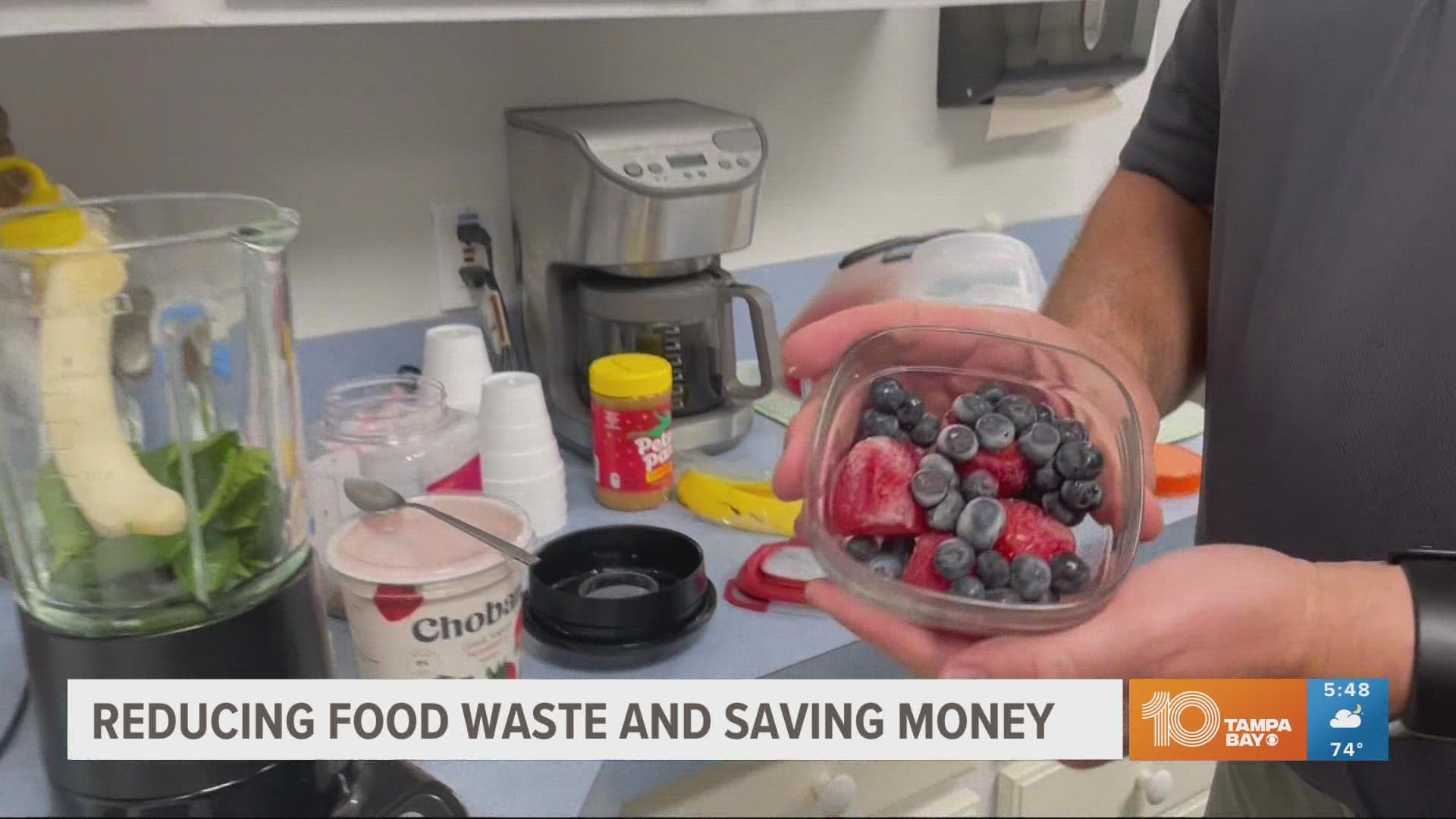HILLSBOROUGH COUNTY, Fla. — The rising cost of food, in addition to shortages, has many of us re-thinking how we grocery shop and plan our meals.
One thing you can do to help save money and the environment at the same time is reduced food waste. In Florida, the average family of four throws out about $1,600 of food each year. Nationally, it's more than $218 billion.
Even more surprising, more than 40 percent of all food grown and produced in the US is never eaten! This is happening even as we know more and more people are becoming food insecure each day.
"By throwing food away, you're really just throwing money away. So especially now with food prices going up. And budgets are just a little more tighter, it's important that we try to maximize our food." Brian Taylor is a registered dietitian with Hillsborough County. He says to freeze fresh produce you know you won't use, and those fruits and veggies that are ready to expire can be put to use in smoothies or soups or casseroles.
Daniel Gallagher is Hillsborough County's Recycling Coordinator. He says the best way to start reducing your food waste is to look at your trash can.
"So let's start to figure out what we're throwing away. What we're not eating and what we don't eat in time and start cutting back that way. And then when you go to the grocery store, the number one thing is don't shop hungry. Come with a meal plan, know what you're going to eat," Gallagher said.
And he says to understand the difference between food waste and wasted food. "Wasted food is all those vegetables that you bought and didn't eat in time. And then there's food waste, little bits and scraps that you can't eat, but you can compost."
Lisa Meredith teaches people how to compost and why it's important. "It keeps the food waste and yard waste out of our landfills and it also helps the Florida soils retain more moisture and cuts on your fertilizer costs by using compost."

